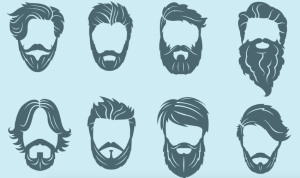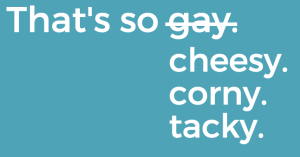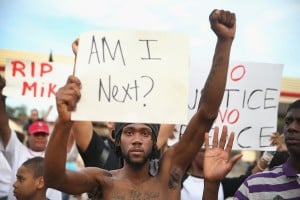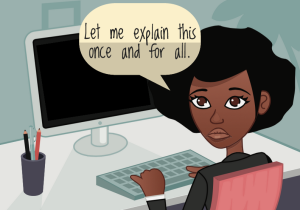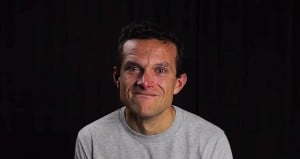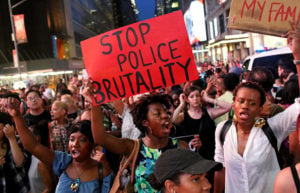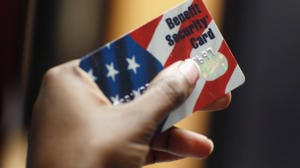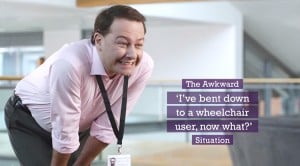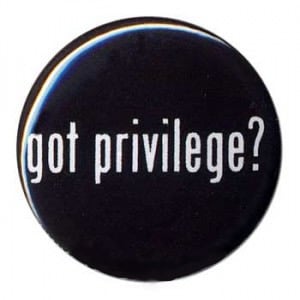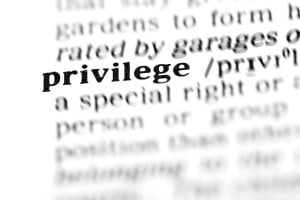
Source: Autostraddle
We live in a time when conversations about privilege – the everyday benefits and advantages that people receive in society because of their identity – have become incredibly commonplace.
From a side note to “check your privilege” to the growth of the critical White Privilege Conference to references in major newspapers and magazines, it seems that recognizing privilege as a concept has broken through into the mainstream.
Privilege has gone pop.
I mean, how much more pop can you get than having Jon Stewart and Bill O’Reilly debate whether White privilege is real on one of the most-watched television programs in the US?
And if you’re not sure just how privileged you are, Buzzfeed has a quiz for that! Ain’t nothing like a hyper-simplistic measure that conflates all identities and privileges into one aggregate “score” to convince someone that they need to reconsider the benefits their identity gives them!
That said, it really is amazing that the privilege conversation has gone so mainstream considering that scholars and activists, particularly those without privilege – people with marginalized and oppressed identities – have been talking about privilege for a long time!
W.E.B. Du Bois wrote about the privileges White people receive in society as far back as 1935, and countless scholars of Color have explored the implications of White privilege (though notably and problematically the most famous scholar on the subject is a White, cisgender woman – Peggy McIntosh).
We shouldn’t downplay the power of this moment – that privilege discourse has entered mainstream discourse is a powerful change.
But is privilege going pop a good thing?
Problematizing Pop Cultural Privilege
Privilege being discussed in the mainstream has the power to start some important discussions about identity and systems of oppression.
However, the problem with pop culture is that it isn’t exactly supportive of nuance and complexity.
Take pop music (which, let’s be real, I love): With rare exception, it boils music down to the simplest concepts, sounds, and lyrics for mass consumption.
The same is now happening with conversations about privilege.
And pop culture privilege isn’t actually a good thing.
To the contrary, to talk about privilege without complexity, nuance, or connection to wider systems of oppression actively hurts movements for justice.
To be clear, this doesn’t mean that we shouldn’t talk about privilege.
After all, I can see a bunch of dudes using this argument to say, “Stop talking about my privilege! You’re hurting the feminist movement!”
We should talk about privilege, but when we do so, we must do so with the kind of complexity that actually holds people of privilege accountable and draws more people of privilege into movements for justice.
So how does pop cultural privilege discourse hurt movements for justice?
1. It Gives People of Privilege an Out
More and more, we’re seeing people of different identity privileges owning that they have privilege, which is, in some small ways, a great thing.
Unfortunately, though, for too many people, it stops there. Many of us act as if simple acknowledgement of our privileges is anti-oppressive when it’s not.
Just as it’s not actually anti-racist to acknowledge racism exists, acknowledging your privilege does little to actually address the systems of oppression that engender privilege.
I’ve seen this most often with politically “liberal” White men who are willing to acknowledge their privilege publicly, but aren’t willing to do anything to actually decenter their Whiteness or maleness to cede power to, say, Women of Color.
For instance, a friend of mine is currently running for the presidency of her student body at a large university on a somewhat radical platform. She and her running mates and campaign committee refuse to spend the thousands of dollars that groups usually spend to get elected, and they are calling for a restructuring of the top-down leadership model that has traditionally favored White male power.
The White men she’s running against, though, have effectively coopted social justice language, labeling themselves allies and naming their privileges, all while further entrenching the same old White male leadership that has characterized student government at this university.
If acknowledging privilege at a surface level enables those with privilege to avoid the radical work of ceding power and working in solidarity, it gives us an out from actually doing justice work.
We can pretend that we’re down for the cause without ever really changing anything.
2. It Erases Intersectionality and Prevents Deeper Engagement in Work for Justice
When we speak of privilege in monoliths (you are privileged or you aren’t), we do a tremendous disservice to all of our identities and our own positionalities in movements for justice.
When privilege is a monolith, as it is often treated at the pop cultural level, it’s far easier for someone to avoid responsibility for their unchecked privilege by pointing to another aspect of their identity that is less than privileged – “I’m not privileged! I’m [insert another marginalized identity]!”
In turn, if we’re going to talk about privilege, we have to do so intersectionally.
In their piece entitled McIntosh as Synecdoche: How Teacher Education’s Focus on White Privilege Undermines Antiracism, the Midwest Critical Whiteness Collective delve into the need for complex, intersectional analysis of privilege while recognizing that White people must still remain accountable across difference and work to undermine systems that afford them privilege.
White privilege is real, but it is not experienced the same by every White person. What White privilege looks like for a “broke White person” is not the same thing as for a wealthy White person, and our conversations about privilege should reflect that.
After all, when we don’t speak with such nuance, we unintentionally isolate or exclude those people of privilege whose experience isn’t reflected in our dominant narratives – and they are less likely to work across difference in the struggle for justice as a result.
3. It Erases the Systems of Oppression Behind Privilege
Identity privilege didn’t just appear out of thin air or happen by accident. Privileges and access have been offered to certain groups of people as part of intentional efforts at maintaining control in systems of oppression.
Yet if you look at the pop cultural conversations about privilege, you would have no idea!
Privilege just seems like some sort of happy accident that we need to address. These conversations name the oppressed but never want to name the oppressor – for that’s a lot scarier, particularly for people like me who have a whole host of identity privileges.
We must talk about privilege and microaggressions, but in doing so, we have to connect these phenomena to the need to dismantle the systems of oppression that create and maintain privilege as a tool of social control and division.
A Call for a Different Privilege Discourse
None of these problems mean that we should never name or discuss privilege.
Privilege discourse is one tool among many in the wider movement to dismantle systems of oppression, but we have to reclaim privilege discourse from the pop cultural abyss.
But how do we do that?
First, we need to practice actual accountability to our privileges.
In one way or another, almost everyone has some form of identity privilege – from ability or neurotypical privilege to class privilege to White privilege, citizenship privilege, religious privilege, or cisgender privilege.
We must work to be accountable to the ways that our unchecked expressions of privilege marginalize and oppress others, and when called out, we need to listen, reflect, and work to do better.
Second, we need to call one another in to complex conversations about decentering our privileged identities.
And in doing so, we need to step aside so that oppressed people and identities are centered in movements.
No, we can’t just claim our privilege, but continue exerting it in privilege-dominated spaces.
No, we can’t keep asserting our marginalizations into spaces where they are not the focus.
We have to join in the difficult conversations currently taking place around identity, and in doing so, we have to listen.
And we have to work to create space where the complexities of privilege can actually be acknowledged, discussed, and dissected if we want privilege discourse to effectively act as a tool for ending oppression.
And as Paulo Freire so well argued in Pedagogy of the Oppressed, we must recognize, follow, and trust the leadership of marginalized people who know what’s best for their own liberation.
And sometimes that’s really hard, as it can mean really giving something up. Trusting the leadership of oppressed people means stepping out of our own roles of leadership and creating space for others to step in.
Trusting the leadership of oppressed people means calling on others to reconsider what leadership actually looks like, as most dominant models of leadership are based in scripts written by and for a privileged few.
But to actually address privilege accountably means that we have to be willing to step aside.
Third, we need to work to engage those who share our privileged identity in working for justice.
Obviously it would be great if people of privilege just would listen to marginalized and oppressed people when they speak truth to power. Sadly, though, we know that isn’t the reality in which we live – or oppression would have ended a long time ago.
Thus, we have a responsibility to call in those who share our privileges to consider the ways that their privilege (even in the context of their oppression) informs their and our positionalities.
When we call in those who share our identity, they may actually listen, and we can open the door for more accountable participation in movements for justice.
Part of what this means, then, is more than just “calling out” people’s privilege.
My general rule is this: While it’s fantastic for oppressed people to simply tell someone to “check their privilege” because the learning of the privileged is not the responsibility of the oppressed, I have no right to just “call out” those who share my identity.
My privilege mandates that I do more than just flippantly tell someone off (no matter how often I still do that or how satisfying it may feel).
I need to work from a place of love to call in my people to change.
Being accountable to my privilege means that I don’t have the right to just call someone out.
I need to do the laborious work of helping those who share my identity to recognize their own role in realizing justice, no matter how hard and frustrating that work may be.
[do_widget id=”text-101″]
Jamie Utt is a Contributing Writer for Everyday Feminism. He is the Founder and Director of Education at CivilSchools, a comprehensive bullying prevention program, a diversity and inclusion consultant, and sexual violence prevention educator based in Tucson, AZ. He is currently working toward his PhD in Teaching, Learning, and Sociocultural Studies at the University of Arizona with research interests in the role that White teacher’s racial identity plays in their teaching practice. Learn more about his work at his website here and follow him on Twitter @utt_jamie. Read his articles here and book him for speaking engagements.
Search our 3000+ articles!
Read our articles about:
Our online racial justice training
Used by hundreds of universities, non-profits, and businesses.
Click to learn more





